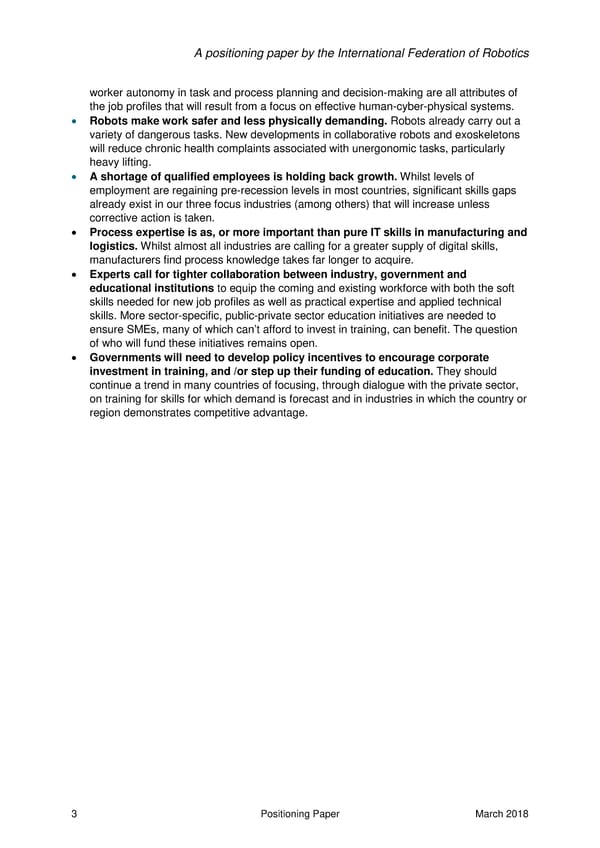A positioning paper by the International Federation of Robotics worker autonomy in task and process planning and decision-making are all attributes of the job profiles that will result from a focus on effective human-cyber-physical systems. • Robots make work safer and less physically demanding. Robots already carry out a variety of dangerous tasks. New developments in collaborative robots and exoskeletons will reduce chronic health complaints associated with unergonomic tasks, particularly heavy lifting. • A shortage of qualified employees is holding back growth. Whilst levels of employment are regaining pre-recession levels in most countries, significant skills gaps already exist in our three focus industries (among others) that will increase unless corrective action is taken. • Process expertise is as, or more important than pure IT skills in manufacturing and logistics. Whilst almost all industries are calling for a greater supply of digital skills, manufacturers find process knowledge takes far longer to acquire. • Experts call for tighter collaboration between industry, government and educational institutions to equip the coming and existing workforce with both the soft skills needed for new job profiles as well as practical expertise and applied technical skills. More sector-specific, public-private sector education initiatives are needed to ensure SMEs, many of which can’t afford to invest in training, can benefit. The question of who will fund these initiatives remains open. • Governments will need to develop policy incentives to encourage corporate investment in training, and /or step up their funding of education. They should continue a trend in many countries of focusing, through dialogue with the private sector, on training for skills for which demand is forecast and in industries in which the country or region demonstrates competitive advantage. 3 Positioning Paper March 2018
 Robots & the Workplace of the Future Page 3 Page 5
Robots & the Workplace of the Future Page 3 Page 5